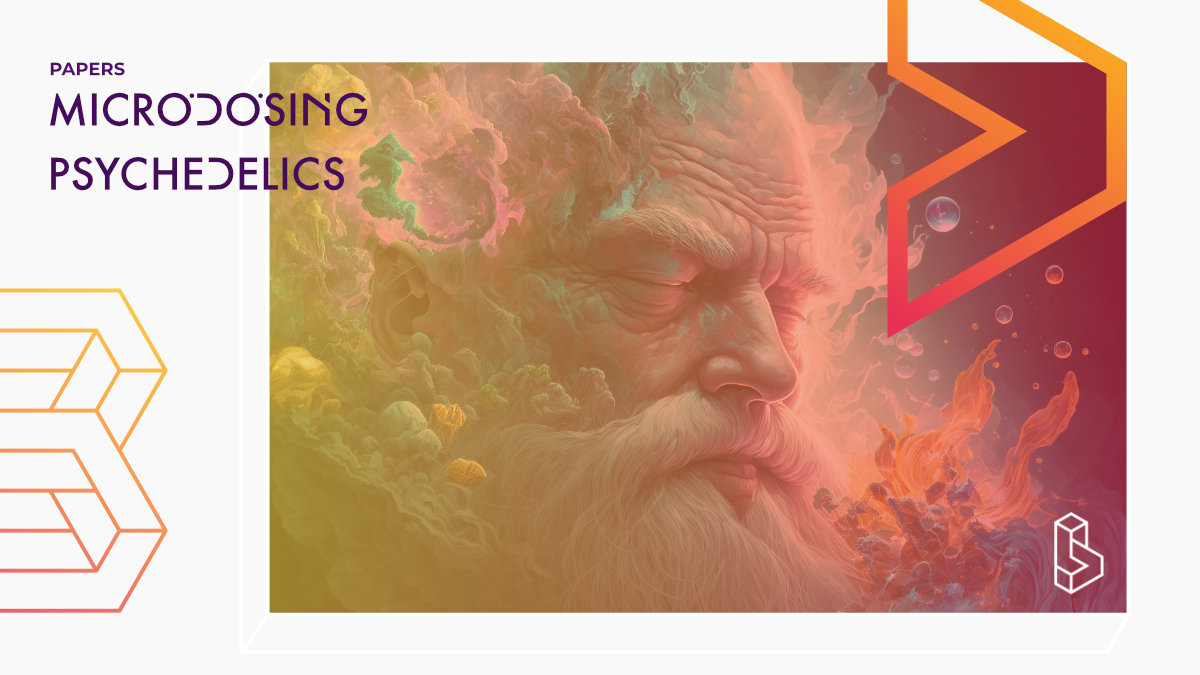This naturalistic study (n=18) on microdosing found that it led to a decrease in positive and overall emotional diversity (emodiversity). Participants experienced more “awe, wonder, or amazement” and “ashamed, humiliated, or disgraced” emotions during microdosing days and fewer “joyful, glad, or happy” emotions.
Abstract of Microdosing psychedelics
“Background and aims Previous research has proposed that microdosing, i.e., the repeated use of sub-threshold doses of serotonergic hallucinogens, has an impact on mood by increasing emotional awareness. We propose that increased emotional awareness could translate into higher emodiversity, a balanced experience of emotions in which emotions are experienced with more similarity in intensity and duration. We examine the effect of microdosing, the day after, as well as the cumulative effect of microdosing on overall, positive and negative emodiversity.
Methods We use data collected over a period of 28 days sampled between February to June 2020 from 18 users that already had an active practice of microdosing at the start of the data collection. We assessed emotional states using ESM methods, i.e., signal-contingent sampling with triggers sent 5 times a day. The working dataset has a number of 224 observations days. We used mixed effects models to test our hypotheses.
Results When taking into account the level of average affect, we found that during microdosing days positive and overall emodiversity were significantly lower. No evidence was found for a mediating role of the level of average affect. Higher cumulative instances of microdosing were not related to any of the emodiversity indexes. Participants experienced more “awe, wonder, or amazement”, “ashamed, humiliated, or disgraced” as well as less “joyful, glad, or happy” emotions during microdosing days.
Conclusion A microdosing practice may increase the centrality of certain emotions on microdosing days, resulting in a decrease in emotional diversity.“
Authors: Ioana Pop & Jannis Dinkelacker
Summary of Microdosing Psychedelics
Microdosing refers to using serotonergic hallucinogens (e.g., LSD and psilocybin-containing mushrooms) to improve well-being, emotional state, and cognitive function by repeatedly ingesting doses that do not reach the threshold for perceptual alterations.
Studies on microdosing have reported varying effects, including alleviation of depressive and anxiety symptoms, better pain management, and increase in creativity, energy levels or focus, but the results are difficult to integrate because of the differences in design, samples and measures that they use.
This study proposes to advance the field in several ways, including by using self-collected data over 28 days in combination with a novel method of data collection, i.e., Experience Sampling Methods (ESM).
Find this paper
Microdosing psychedelics – Does it have an impact on emodiversity?
https://doi.org/10.1556/2054.2022.00208
Open Access | Google Scholar | Backup | 🕊
Cite this paper (APA)
Pop, I., & Dinkelacker, J. (2023). Microdosing psychedelics–Does it have an impact on emodiversity?. Journal of Psychedelic Studies, 7(1), 29-35.
Study details
Topics studied
Microdosing
Study characteristics
Observational
Longitudinal
Participants
18
Humans
Linked Research Papers
Notable research papers that build on or are influenced by this paper
Unlocking the self: Can microdosing psychedelics make one feel more authentic?This survey study (n=18) of microdosers over a month finds that on the microdosing day and the day after participants reported higher state authenticity. The researchers also found that they engaged in more activities on both days, but satisfaction was only higher on the microdosing day itself.

